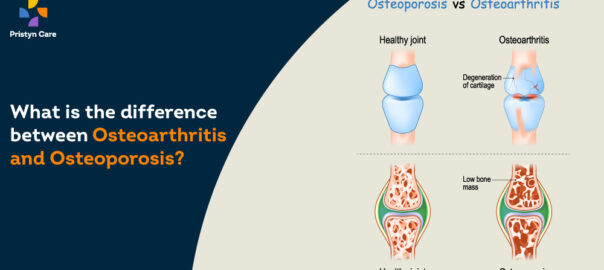![]() Views: 140
Views: 140
Understanding How Weight Affects Your Knees?
Dedicated Support at Every Step!
Our Doctors are available 24 hours a day, 7 days a week to help you!
The Effect of Weight on Knee Health
A person’s body weight plays a major role in causing knee pain. Being overweight or obese can provoke certain conditions that can cause discomfort. Excess weight increases the risk of osteoarthritis (a common joint disorder that is due to wear and tear on a joint). It can also increase the pressure with actions such as walking up steps, squatting to pick up something from the floor, climbing an incline, etc. Moreover, inflammatory factors associated with weight gain can contribute to trouble in other joints.
Table of Contents
How Weight Loss Can Alleviate Knee Pain
Significant weight loss can help reduce inflammation and knee pain. It also helps in reducing the risk of developing or worsening specific types of arthritis. Weight loss can help in alleviating the pain and lead to other advantages such as
- Diminish pressure on knee joints
- Slows down the cartilage degeneration in osteoarthritis
- Lessen the chances of gout attack and reduces the uric acid level
- Ease pain and reduce inflammation
Tips to Maintain Healthy Weight
Listed below are some tips that you can follow to maintain a healthy weight:
- Track what you eat: In most cases, people do not track their calorie intake. In order to maintain a healthy weight, it’s important to track and monitor the total calories you eat and drink each day. It is important to burn more calories than you eat or drink in order to lose weight.
- Exercise daily: The more you are involved in physical activities, the more you burn your calories. Body weight is greatly affected by the amount of energy you consume and the amount of energy you burn. Regular exercise increases the metabolism and helps in maintaining and increasing lean body mass. It is usually recommended to perform aerobic exercises at least three times a week for at least 20 minutes to maintain a healthy weight.
- Get more sleep: An irregular sleep cycle leads to weight gain. A lack of sleep affects the body’s regulation of the neurotransmitters. According to the National Institute of Health, a person who doesn’t get enough sleep often tends to eat more food than they need as a way to stay awake. Make a proper sleeping schedule to get enough sleep. A proper sleep schedule improves hormone function and proper regulation of metabolic pathways, which improves digestion.
- Skip the sugary drinks: Avoid sugary drinks, such as soda, juice, sports drinks, and sweet tea, which lead to weight gain. The sugary drinks cause blood sugar to fall and rise quickly, make you feel hungry sooner, and cause you to eat more.
- Be mindful of your carb intake: It is important to monitor your carb intake in order to maintain a healthy weight. Excessive refined carbs, such as pasta, white bread, and fruit juices, can be detrimental to weight maintenance goals.
- Reduce screen time: Medical research states that if you spend a lot of time in front of screens, you are more likely to be overweight. Make a proper schedule and reduce the amount of time you spend watching television, using computers and phones, and playing video games, using tablets. Try to avoid staying in front of screens at least an hour before bedtime so you can get enough sleep.
- Stay positive: Mental health plays an important role in maintaining a healthy weight. Poor mental state leads to increased appetite and contributes to undesired weight gain. If you stay positive, then your mind secretes and regulates the hormones in a proper manner that helps in maintaining a healthy weight. It leads to the proper functioning of the metabolites that regulate your body weight.
Health Risks Linked to Obesity
Some health conditions that are linked to obesity are as follows:
- Body weight accelerates joint degeneration: Excess body weight makes you more vulnerable to joint degeneration. It puts more pressure on the knees, hips, and on the spine, primarily in the lower back. Joints absorb and transfer that force, significantly leading o the ongoing wear and tear that causes osteoarthritis. While walking, the force on each knee is three times your body weight. While jumping, the pressure is 10 times your weight. As your weight increases, it adds pressure to the joint, and the protective cartilage degenerates and wears away faster. This leads to the development of osteoarthritis.
- Excess weight leads to arthritis: Arthritis is a disease that affects the joints and causes swelling and tenderness. It usually occurs when the excess body weight puts more pressure on the knee and other joints. It leads to tissue lining and causes inflammation. Osteoarthritis doesn’t occur with inflammation; it gradually develops due to irritation and damage in the joint. If you delay the treatment, the joint inflammation becomes chronic and contributes to the severity of the disease. Arthritis, inflammation dissolves the bone and leads to joint deformities. Fat tissues constantly release biochemicals that cause inflammation throughout your body, including the joints. Extra body weight leads to more secretion of biochemicals and leads to higher levels of inflammation. This higher inflammation increases the risk of making the condition even worse.
- Risk of gout: It is an inflammatory arthritis that is linked to obesity. It usually occurs when you have too much uric acid in your blood. The extra deposition of uric acid forms the crystals that deposit in the joint and start causing pain. In healthy conditions, the kidney eliminates the uric acid, but if you are overweight, then it hampers the proper functioning of the kidney and leads to excess deposition of uric acid. Gout affects the foot, ankle, knee, or even the joints of your hands, wrists, and elbows.
What is the Best Treatment for Knee Arthritis?
Medical professionals typically consider surgery when conservative treatments like medications and physical therapy have failed to provide relief to the pain caused due to knee arthritis. One common surgical option is knee replacement surgery, where damaged joint surfaces are replaced with artificial implants. This procedure aims to alleviate pain, improve knee function, and enhance overall quality of life. Surgery is often recommended when the arthritis is advanced, causing significant joint damage. It can be the best treatment option because it addresses the underlying structural issues, providing a long-lasting solution for pain and functional limitations. However, the decision for surgery should be carefully evaluated with a healthcare professional, considering the patient's overall health, lifestyle, and the severity of arthritis.
Conclusion
Maintaining a healthy weight is extremely important to reduce the load on the knee joint. It also helps prevent associated inflammation that may cause knee pain. People with a high BMI are more likely to have a risk of developing various health condition that requires prompt treatment. There are multiple ways to lose weight to alleviate knee pain. Exercising regularly and improving eating habits are two lifestyle changes that can help you maintain a healthy weight.










